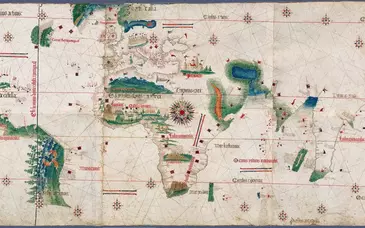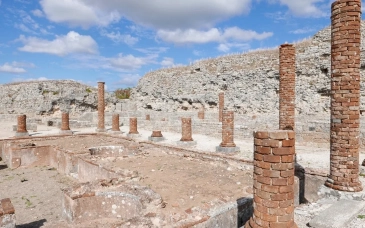Portugal has a rich Catholic tradition that has produced saints who hold significant influence within the global Church. These saints, from Saint Anthony of Padua to the more recent Francisco and Jacinta Marto, have impacted Catholic spirituality, liturgy, and missionary work, and their influence continues to inspire millions worldwide. This article will explore the lives of some of the most influential Portuguese saints, their impact on modern Catholicism, and how their legacy endures through devotion, practice, and teachings within the global Church.
The Historical and Cultural Background of Portuguese Catholicism
The Catholic Roots of Portugal
Portugal’s connection to Catholicism dates back to its earliest days as a nation. Established as a Christian kingdom in the 12th century, Portugal has maintained a deeply rooted Catholic identity, which shaped its national consciousness, culture, and policies over centuries. The Church played a fundamental role in Portuguese history, from supporting the Age of Exploration to fostering missionary work in Africa, Asia, and Latin America. Portugal's colonies became centers of Catholic evangelization, with Portuguese saints emerging as symbols of faith and dedication to Christian values.
Saints as National Patrons and Models of Faith
In Catholic tradition, saints are often viewed as patrons, intercessors, and models of Christian virtue. Portuguese saints reflect the values, struggles, and virtues associated with Portugal’s historical and spiritual journey. Their lives exemplify courage, compassion, and unwavering faith, serving as reminders of the enduring relevance of Christian ideals in a modern context. From Saint Anthony of Padua, whose teachings on humility and charity continue to resonate, to Saint John de Brito, a missionary and martyr in India, Portuguese saints embody a faith that transcends cultural boundaries and speaks to the universal human experience.
Saint Anthony of Padua: The Beloved Preacher and Wonder-Worker
Early Life and Entry into Religious Life
Saint Anthony of Padua, one of the most well-known and beloved saints in the Catholic Church, was born in Lisbon, Portugal, in 1195. Baptized as Fernando Martins, he joined the Augustinian Order before eventually joining the Franciscans, inspired by the stories of the Franciscan martyrs in Morocco. His zeal for preaching and his profound theological knowledge made him a revered figure among the Franciscans and beyond.
Influence on Catholic Teaching and Devotion
Known as the "Hammer of Heretics," Saint Anthony was a formidable preacher who traveled widely to combat heresy, particularly in Italy and France. His sermons emphasized humility, love for the poor, and obedience to God’s will. His ability to communicate complex theological concepts to ordinary people made him a respected teacher and preacher. In 1232, just one year after his death, he was canonized by Pope Gregory IX due to his widespread reputation for holiness and miracles.
Saint Anthony’s influence is visible in the Catholic practice of seeking his intercession for lost items, a devotion that originated from his role as a teacher and preacher who “found” people lost in faith. His Feast Day, celebrated on June 13, is one of the most popular in the Catholic liturgical calendar, particularly in Portugal, Brazil, and Italy, where processions, masses, and prayers reflect his lasting influence. His teachings on social justice, humility, and charity continue to inspire Catholic theology and pastoral work.
Saint Nuno of Saint Mary: Warrior, Patron of Portugal, and Model of Christian Knighthood
A Life of Service and Military Leadership
Saint Nuno Álvares Pereira, also known as Saint Nuno of Saint Mary, was born in 1360 and became a revered military leader who played a crucial role in Portugal’s independence. As a commander, he led Portuguese forces to victory against Castile in the Battle of Aljubarrota in 1385, securing Portugal’s independence under the Aviz dynasty. Known for his chivalry and deep devotion, he dedicated his military success to Our Lady, attributing his victories to her intercession.
Dedication to Religious Life and Canonization
After his military career, Nuno renounced his wealth and power and entered the Carmelite monastery in Lisbon, where he took the name Nuno of Saint Mary. His humility and dedication to prayer, penance, and service reflected a transformation from a warrior to a contemplative, showing the integration of active and contemplative life in Catholic spirituality.
Canonized in 2009 by Pope Benedict XVI, Saint Nuno’s legacy emphasizes the virtues of courage, humility, and devotion to the Virgin Mary. In Portugal, he is venerated as a national hero and a model of Christian knighthood, embodying both patriotic and religious virtues. His life continues to inspire those who seek to balance active engagement in the world with deep spiritual devotion.
Saint John de Brito: The Missionary Martyr of India
Missionary Journey and Enculturation in India
Saint John de Brito, born in Lisbon in 1647, was a Jesuit missionary who spent most of his life in India. Inspired by the example of Saint Francis Xavier, he dedicated himself to spreading Christianity in the Tamil region of southern India. To better serve the local population, he adopted many elements of Tamil culture, including attire, language, and customs. This approach of “enculturation” was revolutionary at the time, reflecting a commitment to respecting and engaging with indigenous cultures rather than imposing Western norms.
Martyrdom and Canonization
John de Brito’s missionary work faced fierce opposition from local rulers and religious authorities, who saw his conversion efforts as a threat. In 1693, he was arrested and executed by beheading. His death as a martyr underscored his unwavering commitment to the faith and his respect for the culture and customs of the people he served.
Canonized in 1947 by Pope Pius XII, Saint John de Brito is celebrated for his courage, cultural sensitivity, and dedication to evangelization. His influence is particularly strong in India, where he is venerated as one of the patron saints, but his legacy also resonates globally as a model of cross-cultural mission work that respects and uplifts local traditions. Modern Catholic missionary practices continue to draw inspiration from his example of humility, respect, and dedication.
Saint Elizabeth of Portugal: Peacemaker and Patron of Families
Life as a Queen and Patron of the Poor
Saint Elizabeth of Portugal, also known as Isabel of Aragon, was born into Spanish royalty in 1271 and became the Queen of Portugal through her marriage to King Denis. Known for her devotion to the poor and her efforts to promote peace within her family and kingdom, Elizabeth is remembered as a peacemaker who resolved conflicts and sought to reconcile divided factions.
Legacy and Canonization
After her husband’s death, Elizabeth became a Franciscan tertiary, dedicating herself to works of charity and religious devotion. Canonized by Pope Urban VIII in 1625, Saint Elizabeth is revered as a model of Christian charity and familial peace. Her life serves as an example for those seeking to embody virtues of forgiveness, charity, and reconciliation, especially within family and community settings. Her influence extends beyond Portugal, as her life story resonates with those who value peace-building and compassionate leadership.
Saints Francisco and Jacinta Marto: Child Saints of Fátima
The Apparitions of Fátima and Their Spiritual Impact
Francisco and Jacinta Marto were young shepherd children who witnessed the Marian apparitions in Fátima in 1917. Their lives were transformed by the experience, leading them to embrace prayer, penance, and sacrifices for the conversion of sinners and world peace. Their innocence, humility, and willingness to suffer for the faith made them extraordinary figures within Catholic spirituality.
Canonization and Influence in Modern Catholic Devotion
Canonized by Pope Francis in 2017, Francisco and Jacinta are the youngest non-martyr saints in the Catholic Church. Their example is particularly influential in encouraging devotion to the Rosary and Marian spirituality. The devotion to Our Lady of Fátima has a global following, and the lives of Francisco and Jacinta serve as powerful testimonies to the faith and dedication of children. Their story resonates with Catholics worldwide, particularly within the context of prayer for peace and reparation for sin, themes that remain relevant in contemporary society.
The Global Impact of Portuguese Saints in Modern Catholicism
Marian Devotion and Pilgrimage
Portuguese saints have significantly contributed to Marian devotion, with Our Lady of Fátima playing a central role in modern Catholic spirituality. The Shrine of Fátima has become one of the most important pilgrimage sites globally, drawing millions of pilgrims who seek intercession, healing, and spiritual renewal. The devotion to Our Lady of Fátima, inspired by the lives of the young Portuguese saints, continues to promote prayer, penance, and peace, making it a cornerstone of modern Catholicism.
Influence on Catholic Missionary Work and Social Justice
Saints like John de Brito and Saint Anthony of Padua have influenced Catholic missionary work and approaches to social justice. Their examples encourage modern missionaries to engage with different cultures respectfully, promoting an inclusive evangelization model that values dialogue and collaboration. The commitment to charity, humility, and compassion seen in these saints resonates with Catholic teachings on social justice, reinforcing the Church’s dedication to serving marginalized communities worldwide.
Role Models for Family and Personal Holiness
Portuguese saints such as Saint Elizabeth of Portugal and Saint Nuno of Saint Mary continue to serve as models of Christian family life, charity, and personal holiness. Their stories inspire families to pursue peace, reconciliation, and a life rooted in faith. The example of Francisco and Jacinta Marto, in particular, reminds Catholics of the importance of nurturing faith from a young age, encouraging families to foster devotion, prayer, and moral integrity within their homes.
The Enduring Legacy of Portuguese Saints
The influence of Portuguese saints in modern Catholicism reflects the powerful role of faith, courage, and humility in transforming individuals and societies.
From the pastoral teachings of Saint Anthony of Padua to the missionary zeal of Saint John de Brito and the Marian devotion associated with Francisco and Jacinta Marto, these saints continue to shape Catholic life and spirituality.
As models of faith, charity, and peace, Portuguese saints embody the timeless values of the Catholic Church and inspire believers around the world to live lives of holiness, service, and devotion to God. Their legacy lives on not only through the liturgies, devotions, and pilgrimages that honor them but also in the hearts of the faithful who continue to seek their intercession and follow their example in the pursuit of Christian virtue.



